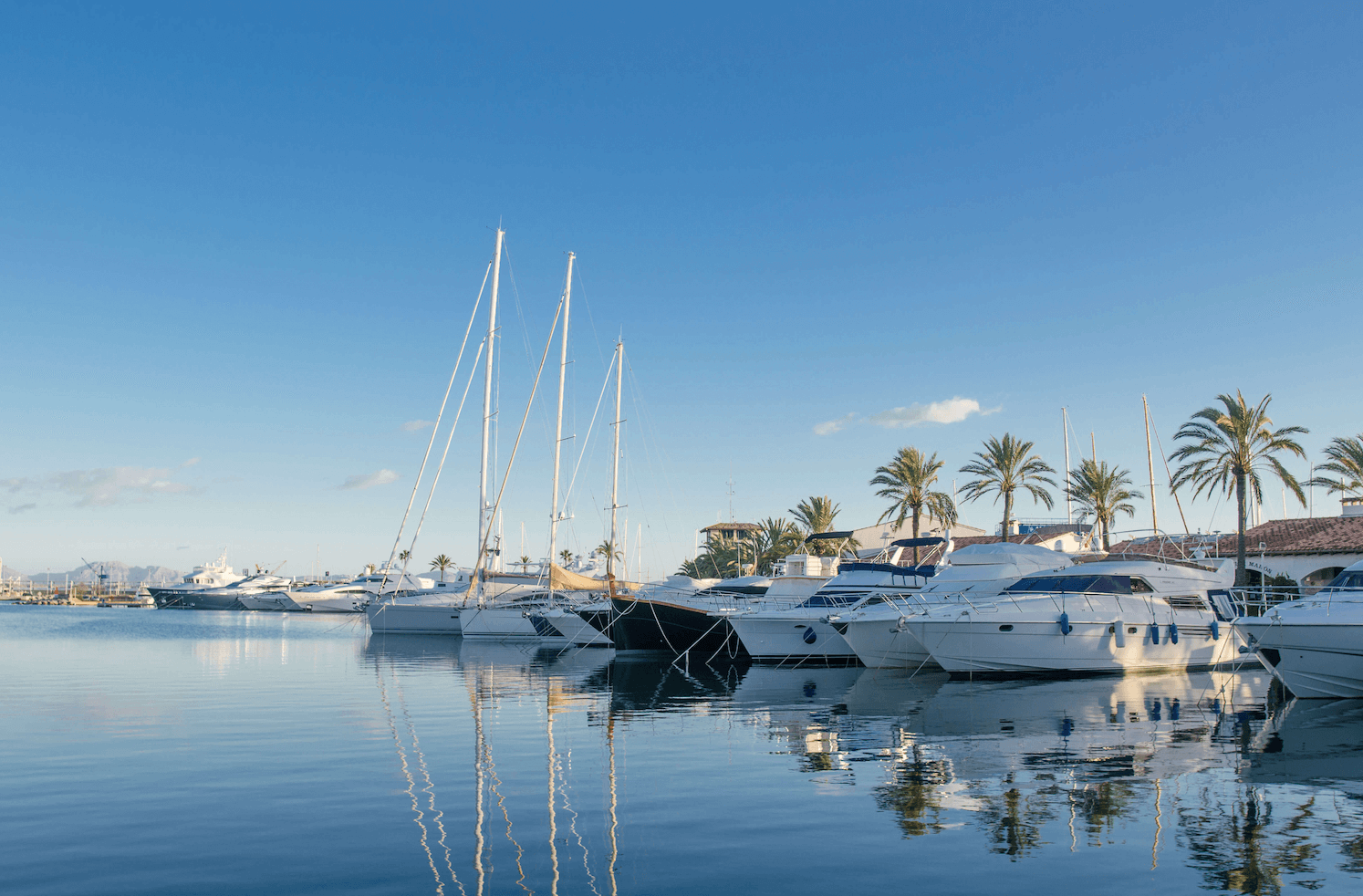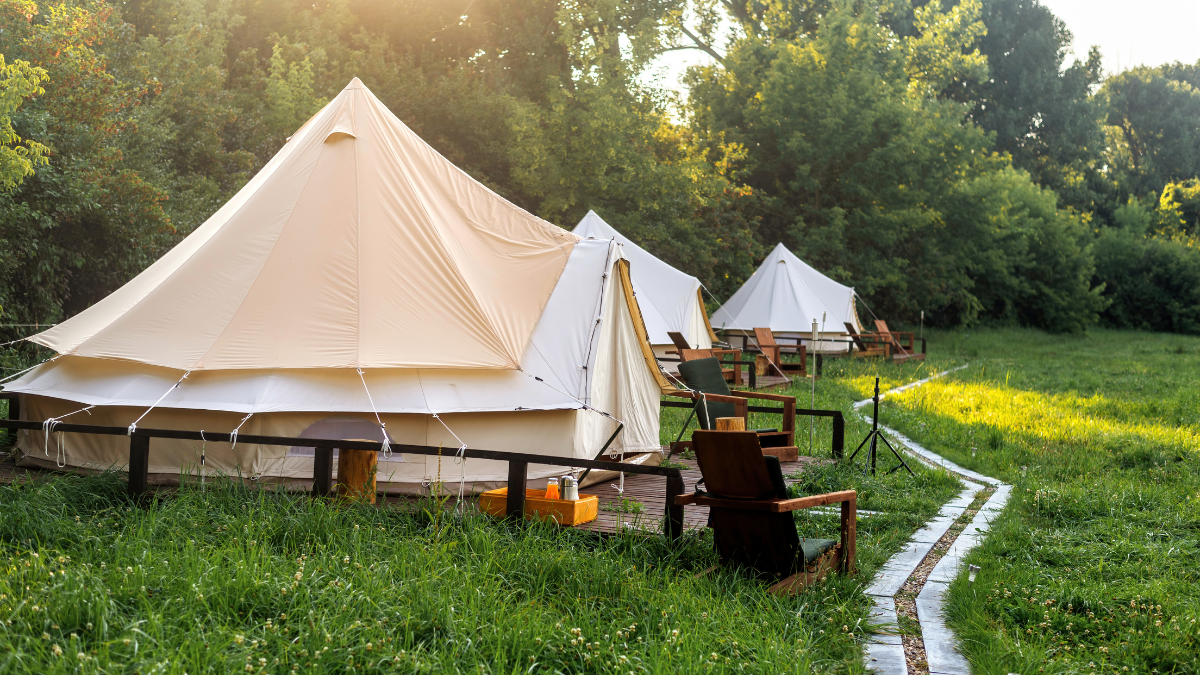May and June are quickly approaching, which means that the Pacific and Atlantic hurricane seasons are about to begin. For marinas, hurricanes can be particularly harrowing, as they could put your boaters in harm’s way. Below, we’ll discuss everything you need to know about hurricane preparedness for marinas and what these precautions mean from a business perspective.
How To Hurricane Prep Your Physical Property
When prepping your business for a hurricane, timing is everything. To ensure your property is ready, create and test a marina preparedness plan well before the first hurricane of the season is announced. According to the Boat U.S. guide, having boats hauled on shore before a hurricane is one of the safest options for most boats.
It’s also wise to make sure that your plan for hauling boats includes having trained staff on duty, signed paperwork by boaters agreeing that the marina can haul the boats at the marina’s discretion during a storm, and safe spaces on the ground for the boats. You’ll also want to inform boaters to properly secure the bigger boats in the larger slips.
Another crucial part of your plan should include an inspection of your property.
Property Inspection
When inspecting your marina for potential repairs or upgrades prior to a hurricane, check:
- Roofs
- Signs
- Wires
- Windows
If any of these things are damaged, missing, or too old to be reliable, consider repair or replacement options and note each issue so you can address them in a timely manner.
Slips
Slips should be prepared for increased currents and rising water levels. Additional supplies should be readily available so boaters can create a storm arrangement for securing their vessel. Before a hurricane hits, assure that boats are not in neighboring slips, as some storm arrangements may require stern lines to be extended one or two slips away.
Pilings
The pilings should be up to date in both height and structure to handle hurricane swells. If your marina is located in an area with frequent storms and hurricanes, you may want to consider using concrete pilings to reduce the chance of bending during strong currents or significant swells.
Emergency Equipment
A major part of preparing for a hurricane is to have all emergency equipment checked, conveniently located, and ready for use. Emergency equipment for your boaters to have on-hand should include:
- Boards for windows.
- Sandbags to help with flooding.
- Emergency generators
- Extra cleats and chocks that boaters can add to their boats to use with storm lines
- Emergency kits with first aid supplies, water, flashlights, etc. for your boaters
- Updated fire extinguishers securely placed in marked locations on your property
With luck, these items won’t be necessary and you can reuse some for next year’s season; but if a hurricane comes your way, you’ll be glad you’ve helped ensure the safety of everyone at your property.
General Business Hurricane Preparedness Plans
Pre-hurricane season, check that all of your updated emergency plans are ready to use and that you have a hurricane protection checklist to send to your current visitors in the event of a hurricane.
Pre-Hurricane Guest Communications
Check that data and reservation information is accurate and safe, so you can use it to contact your visitors in case of an emergency situation. This may include having to cancel reservations — depending on the storm severity — to keep your boaters safe.
Having reservation information saved on a cloud-based reservation management system will give you quick access to guest data as well as a way to communicate with multiple guests at one time if your software allows for email communications. It also allows you to have confidence that your data, reservations, and other information is safe. If your property is damaged from a storm, your critical business information will still be accessible through a cloud-based marina management system.
Actions When a Hurricane Is on the Way
If a hurricane has been announced and you are in the path, let all boaters in your database know about the safety precautions they should take. You’ll also want to share your marina’s emergency plan information to reassure your current guests that their safety is your top priority.
Some reminders you can share with your boaters during a hurricane include:
- Do not try to ride the storm out in the open sea.
- Make sure your secured boat is not overly exposed to open water.
- Remove all valuables from the boat.
- Reinforce boat windows.
- Keep your craft away from harbors with excessive rocks.
- Use dock lines meant for storms.
Insurance Coverage
Check that your insurance policy covers hurricane damage to your marina. It would also be a kind gesture to remind boaters to check their own boat insurance to make sure that their policy includes hurricane damage. Paying attention to insurance guidelines and restrictions could save you and your visitors money if a hurricane hits.
The Consequences of Not Preparing for Hurricane Season
Not preparing for hurricanes can leave you with several negative consequences, including:
- Property damage and data loss that harms your business in the short- and long-term.
- Not able to handle the influx of reservations and accommodations as boaters seek safety.
- Shortages in supplies for both your property management team and your boaters.
- Lack of food, water, and first aid for your boaters and your staff.
Although the damage to your property from a hurricane can be devastating by itself, a loss of life due to poor communication with your boaters is something that must be avoided at all costs. If a serious hurricane is on the way, make sure all of your boaters are properly following evacuation procedures.
Hurricane Preparedness for Marinas Made Easier
Although no marina owner wants to hear that a hurricane is on the way, that time may come, so make sure you’re ready by preparing ahead of time. By informing your staff and boaters through your reservation management system of safety guidelines and procedures, you can help protect every person — and boat — at your property.
Preparing for a hurricane is made easier when your processes and procedures are well-defined. Learn how to achieve operational excellence to improve the boater experience and maximize your bookings at your marina.




